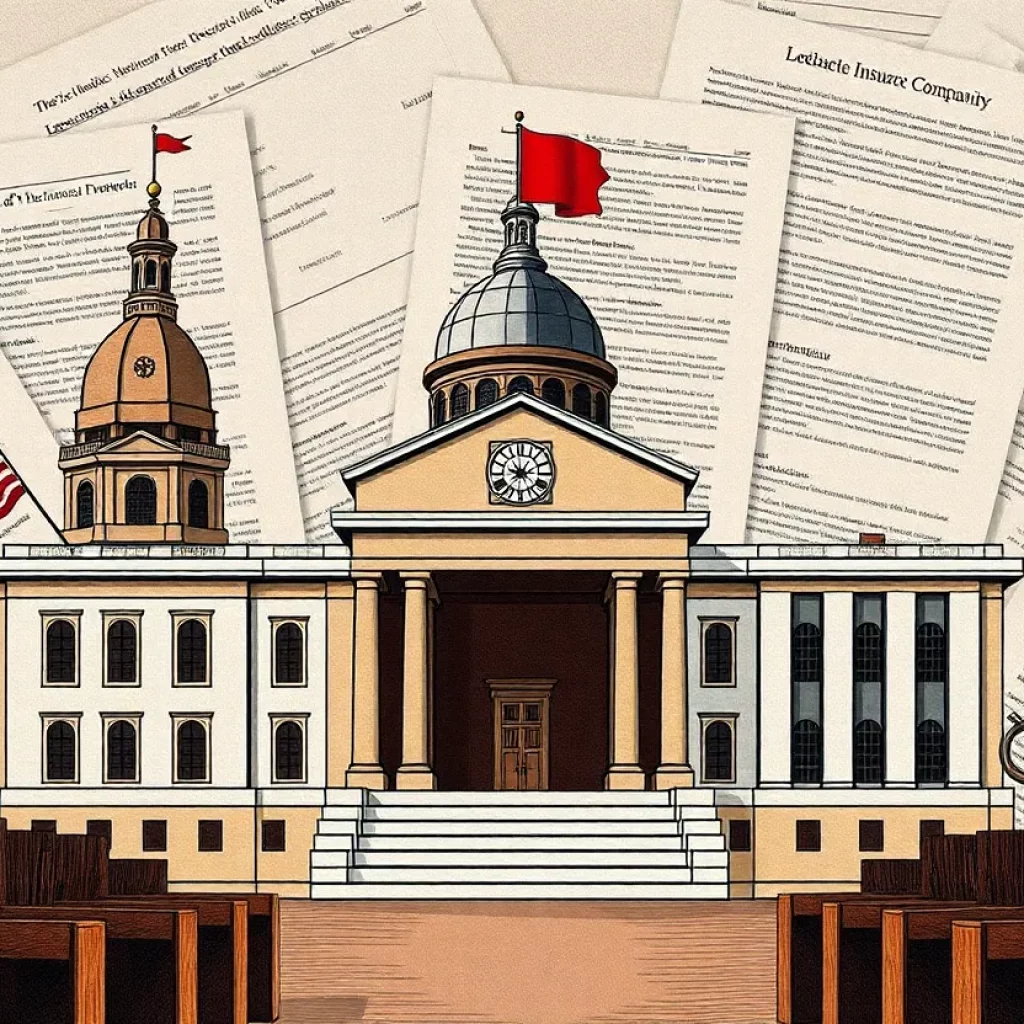News Summary
House Bill 4806 is causing a stir in the Texas legislature as legal experts and injury advocates express concern over its potential impact on personal injury law. The bill, which aims to reform civil law, has been criticized for prioritizing insurance companies over victims’ rights. Key objections focus on the unanimous juror agreement requirement, which could leave victims without compensation. Emotional testimonies highlight the human consequences of the proposed changes, as advocates race against time to influence the legislature’s decision.
House Bill 4806 Faces Backlash in Texas Legislature
As the Texas legislature continues its efforts to address civil law reforms, House Bill 4806 has emerged as a focal point of contention. Currently stuck in the Committee on Judiciary & Civil Jurisprudence, the legislation has prompted significant concerns from legal experts and injury advocates alike.
A Bill Viewed as Benefiting Insurance Companies
Valerie Malone, a prominent personal injury attorney based in Lubbock, has declared that House Bill 4806 represents the biggest rewrite of civil law in Texas history, particularly impacting civil personal injury law. With the bill’s author, Representative Greg Bonnen from Galveston, contending that the legislation aims to *reduce costs* associated with *overutilization* and *overbilling*, critics argue that the proposal prioritizes the profits of insurance companies over the well-being of Texas residents.
Malone warns that if this bill passes, it could have detrimental effects on future clients, specifically referencing a heartbreaking case involving a young girl who suffered serious injuries from a dog attack. This concern underscores the potential implications of the bill’s provisions that would require unanimous juror agreement on amounts related to pain and suffering.
The Unintended Consequences of Juror Requirements
The stringent *unanimous agreement* requirement among jurors could lead to a scenario where victims receive *zero compensation* for their injuries in the event of any dissent. This is particularly alarming for families like the Spragues, who have expressed serious concerns regarding the bill’s implications for their one-year-old son, tragically killed by a truck driver. They worry that the revisions to definitions surrounding *mental anguish* could further limit the compensation available for their devastating loss.
Jason Sprague has articulated the belief that the law undervalues significant human experiences such as resilience and grief, with an overarching benefit ultimately skewed towards insurance companies looking to minimize their payouts.
Industry Perspectives and Support for the Legislation
On the other side of the debate, Dick Trabulsi, chairman of Texans for Lawsuit Reform, has championed the bill as a fair and balanced approach, claiming it enjoys support from the broader business community in Texas. He insists that the legislation will not create barriers for potential victims attempting to access the courts or secure fair compensation for their injuries.
This conflicting viewpoint highlights the ongoing battle between *business interests* and the *rights of individuals* in the realm of personal injury law. Malone contends that the lobbying power of the insurance sector may be manipulating perceptions within the business community to advance their agenda while misrepresenting how the bill would impact local businesses.
Emotional Testimonies Shape the Debate
Amidst legislative discussions, personal stories of resilience and tragedy have emerged to emphasize the human aspect at the heart of this debate. Brianna Blake, who survived a severe car crash at a mere 12 years old, provided deeply emotional testimony against House Bill 4806. With her mother translating her sign language, Blake’s case starkly illustrated the determination of those who defy daunting odds, challenging claims that the legislation would not negatively affect victims.
The recent committee hearing on House Bill 4806 lasted three hours, revealing the passionate discussions surrounding the bill. As supporters and detractors clash, the future of the legislation remains uncertain, with its potential ramifications looming large over the Texas legal landscape.
The Ongoing Race Against Time
While the legislative clock ticks down, advocates and affected families are left questioning whether their voices will be heard in this critical juncture. With divergent perspectives from prominent legal figures and victims alike, it remains to be seen whether House Bill 4806 will ultimately pass or be relegated to the annals of controversial legislation.
Without a clear path forward, Texas stands at a crossroads, balancing the interests of its residents against the powerful influence of the insurance industry in shaping civil law. The implications of this bill carry the potential to alter the legal framework surrounding personal injury cases for generations to come.
Deeper Dive: News & Info About This Topic
HERE Resources
Motorcyclist Hospitalized After Collision with Semi-Truck in San Antonio
The Hidden Dangers of High-Volume Personal Injury Law Firms
Texas Bill Could Limit Injury Compensation Rights for Lawyers
Additional Resources
- KCBD News
- Wikipedia: Civil Law
- Texas Tribune
- Encyclopedia Britannica: Personal Injury Law
- Google Search: House Bill 4806 Texas
Author: STAFF HERE CHARLESTON
The CHARLESTON STAFF WRITER represents the experienced team at HEREcharleston.com, your go-to source for actionable local news and information in Charleston, Charleston County, and beyond. Specializing in "news you can use," we cover essential topics like product reviews for personal and business needs, local business directories, politics, real estate trends, neighborhood insights, and state news affecting the area—with deep expertise drawn from years of dedicated reporting and strong community input, including local press releases and business updates. We deliver top reporting on high-value events such as the Spoleto Festival USA, Charleston Wine + Food Festival, and the MOJA Festival. Our coverage extends to key organizations like the Charleston Metro Chamber of Commerce and the Charleston Museum, plus leading businesses in tourism and maritime industries that power the local economy such as South Carolina Ports Authority and the Charleston Visitor Center. As part of the broader HERE network, including HEREaiken.com, HEREbeaufort.com, HEREchapin.com, HEREcharleston.com, HEREclinton.com, HEREcolumbia.com, HEREgeorgetown.com, HEREgreenwood.com, HEREgreenville.com, HEREhiltonhead.com, HEREirmo.com, HEREmyrtlebeach.com, HEREnewberry.com, HERErockhill.com, HEREspartanburg.com, HEREaustin.com, HEREcollegestation.com, HEREdallas.com, HEREhouston.com, and HEREsanantonio.com, we provide comprehensive, credible insights into South Carolina's dynamic landscape.










